A follow-up to my first post on the plethora of great international prog-rock recordings available to the enthusiast. Read the first piece for the preamble.
(NOTE: Since I remain on a hiatus, I adapted these reviews from ones that I wrote for a prog fansite years ago. Every word is my own writing)
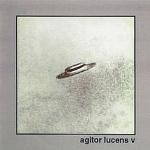 Arco Iris – Agitor Lucens V (1974)
Arco Iris – Agitor Lucens V (1974)

Arco Iris was an Argentinian group that started off as a psych band before falling under the influence of Dana, a female guru, who they continued to follow for thirty years. They went on to a long career in prog before eventually relocating to the U.S. to do more of a traditional Andean folk thing. This ambitious double album from 1975 is certainly one of the better South American prog albums I’ve heard, which is saying a lot. It appears to have a concept about aliens visiting ancient South Americans. Arco Iris’s sound, like Los Jaivas, has a lot of Andean folk influences, though not to the same extent. There is also a pronounced jazz rock edge to the more up-tempo pieces and an occasional Floydian spaciness. A double album was not always the best idea for prog groups, which often lost focus over 80+ minutes, but in this case it allowed the band to stretch out without getting too boring. The songs vary from delicate acoustic pieces to the aforementioned sax-driven jazzy numbers. The quality of musicianship is very impressive, particularly in the guitar department. The band was also very strong vocally. Though the album occasionally slips into a less interesting and more typical jammy organ-driven 70s prog sound, it is rescued from the mundane by the disarming South American folk melodies in the acoustic pieces. Anyone into Los Jaivas or South American 70s prog in general will really enjoy this record.
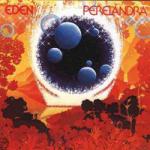 Eden – Perelandra (1980)
Eden – Perelandra (1980)

Eden was a large German band that did Christian prog, meaning that their work was based on Christian themes. I barely understand German, but this is obviously an adaptation of CS Lewis’s science fiction Christian-themed trilogy. Eden was a big band that featured violin prominently, as well as flute and assorted percussion, but still with a rock base. Excellent keyboard textures (if you like late 70s string synthy sounds) and a variety of good male and female vocals, often in powerful sounding choruses. Unlike on their first album, Erwartung, another concept album, the band went for shorter songs on this one, all of which pack a very dramatic, earnest punch. This almost-forgotten band won’t be everyone’s cup of tea, but fans of Novalis and late-70s Eloy will certainly enjoy this record.
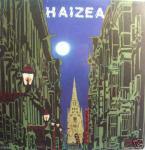 Haizea – Hontz Gaua (1976)
Haizea – Hontz Gaua (1976)

As a fan of folk prog, a genre that probably doesn’t exist but does pretty accurately describe progressive music with acoustic or traditional folk touches, I rate this album very highly. I was just listening to both Haizea albums the other day, and I enjoy the debut almost as much — I think it’s a wonderful folk album on a par with Tangerine’s De L’Autre Côté de la Forêt, another hidden gem from the 70s. But Haizea upped the complexity on this record and added some interesting percussion interludes as well. The female and male vocals are top-quality, harmonizing beautifully, and the Basque folk feel adds a pleasant exoticism. Haizea also featured some of the nicest flute playing you’ll ever hear on a prog record. The group shows itself to be as adept at longer conceptual pieces as it was at lighter, pastoral folk tunes. A beautiful Sunday morning record.
SAMPLE
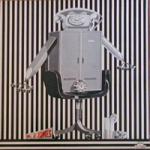 Nuova Idea – Mister E Jones (1972)
Nuova Idea – Mister E Jones (1972)

This was my first album by this Italian group, and it’s very impressive, again showing the scary depth of the Italian prog scene. If anything this group sounds, despite the occasional synth and mellotron texture, more like an Italian version of art rock. I can hear bits of Roxy Music, Queen and 10cc all over the place on this record, in the dense harmonies and exuberant, almost glammy atmosphere. There’s even a hard rock tune with a Blackmore-esque riff and a section of bubbly, almost Schulz-y synth. There appears to be a concept about some sort of Joe Average guy, but my Italian is all but nonexistant. This group sounds like no other Italian prog I’ve heard, and this album has moved up near the top of my Italian prog favourites in a very short time.
SAMPLE
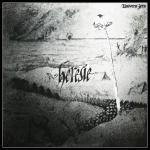 Univers Zero – Heresie (1979)
Univers Zero – Heresie (1979)

Some people overemphasize the scary boogeyman nature of Univers Zero (usually to promote their virtues), I think, but certainly their music is quite moody and dark, and this is likely their darkest sounding record. All the pieces are slow and ponderous, with sustained, repetitive lines and harmonies that are often “dissonant” to traditionalist ears. Certainly you can hear the influence of interesting European composers like Bartok and Messiaen, as well as, if not zeuhl, the same sort of avant-jazz sources as Magma was tapping. Reeds and strings are the lead instruments, making this more of a jazz/chamber fusion than anything to do with rock music in the usual sense. The kind of music that would be good scoring a old silent horror movie, this is definitely a classic of its genre — I have to be in the mood for it, but it fits that mood perfectly.
SAMPLE
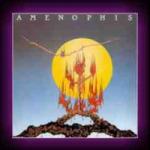 Amenophis – Amenophis (1983)
Amenophis – Amenophis (1983)

This is a decent release from the dark ages of prog (1983). Heavily influenced by Camel, this group creates an enticing canvases of Latimer-esque guitar and flowing analog keyboards. I don’t really hear a big Genesis-influence, as others have said. Not as much as Neuschwanstein, anyway. Heavy on the beauty, not the chops, which is good for me, but if Relayer is your favorite album, this won’t nearly be chop-meistery enough for you. The vocals are as predictably poor, as we can expect from European bands trying to wrap their tongues around clumsy English lyrics, but fortunately, as on many Eloy albums, the long instrumental passages are worth trying to ignore them. The CD collects a bunch of bonus tracks, which are in French for some reason, but they are nice acoustic pieces which don’t resemble the rest of album much. Camel freaks might want to search this one out.
SAMPLE
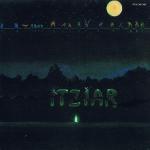 Itziar – Itziar (1979)
Itziar – Itziar (1979)

Another nice one-off entry in the genre of Basque folk rock. Itziar’s music resembes the first Haizea album in that it is more folk rock than prog folk of the sort that Itoiz delved into. The album, which does have a bass/drums rhythm section, is dominated by chiming guitars, usually nylon-string, with touches of electric guitar (even some solos), flute, sax and some background synth. The female lead vocalist mixes traditional singing with some distinct Joni Mitchell influence at times- very pleasant. As on pretty well all Iberian music I’ve heard, the group vocals as a whole are excellent. Sonically, the Basque folk element is strong, of course, but there is also a resemblance to Beau Dommage’s jazzy folk-rock style in Quebec during the same era. If you like Iberian prog folk/folk rock, this album is guaranteed to please.
SAMPLE
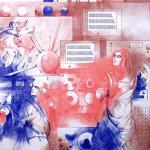 Machiavel – Mechanical Moonbeams (1978)
Machiavel – Mechanical Moonbeams (1978)

This is the first Machiavel album I heard. It’s more than serviceable late-70s symphonic. There are some strong points — the English vocals are mercifully unaccented and the lyrics aren’t bad, although a bit nondescript. The singing is excellent, if a bit twee. A good area of keyboard sounds, electric-piano, mellotron, and synth are used, and the production is excellent. The guitar playing, especially the acoustic playing, is pleasant but unobtrusive. The band’s sound at this point was a mix of Camelish soft prog with a Supertrampish pop sensibility. There seems to be some attempt at Gallic high drama, but it pales in comparison to more histrionic French contemporaries like Ange and Mona Lisa. All in all, a good CD, B+ grade late 70s European sympho which you’ll enjoy if you are a collector of that genre.
SAMPLE
 Pablo -“El Enterrador” (1983)
Pablo -“El Enterrador” (1983)

This is a rather famed second-tier album from South America. It’s gotten some rave reviews, but I can’t go quite quite as far as raving, the reason being that the band’s style is so close to ’76-’81 Genesis as to be pretty much a clone. All the elements are there: floating synth solos, staccato rhythms on the keyboards, an electric piano sound and style that copies Banks’ on Duke exactly, Collinsy/Gabriely vocals. I don’t really hear any Latin American musical influences. There’s even a tune that sounds suspiciously like “Turn it On Again” at times. Locanda delle Fate is another band that is often mentioned in comparison, but it’s not nearly as strong as the Duke influence (and besides, I’m not that sold on LDF either). Nonetheless, this is a three-star album because, though derivative, the compositions and playing are very solid and my synapses did send me some pleasure signals while listening. Genesis fans who want Genesis in Spanish will enjoy this!
SAMPLE
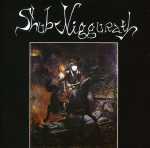 Shub-Niggurath – Les Morts Vont Vite (1986)
Shub-Niggurath – Les Morts Vont Vite (1986)

This second-generation zeuhl album (if you don’t know what that is) is somewhat legendary for its aggressiveness and dark atmospheres, which are on a par with or perhaps even eclipse Magma’s at times. Since zeuhl is a genre created by one man, Christian Vander, it’s perhaps unfair to judge an album poorly because it sticks to the zeuhl script too closely. Having said that, this album is so Magma-ish that it could be Magma! All the hallmarks are there: dissonant, high-pitched vocals, tinkly piano, clattery drums, wildly overdriven bass guitar, although Shub-Niggurath does offer something a little different: a lot of crazy feedbacky sorta-jazzy avant garde guitar solos. The atmosphere of the record is certainly dark, oppressive, and violent, making for a cathartic listening experience, to say the least. The musicianship is impressive, though not quite up to Magma standards. Certainly anyone interested in zeuhl should have this album, if you don’t already. It’s an essential in the (sub)-genre.
SAMPLE



